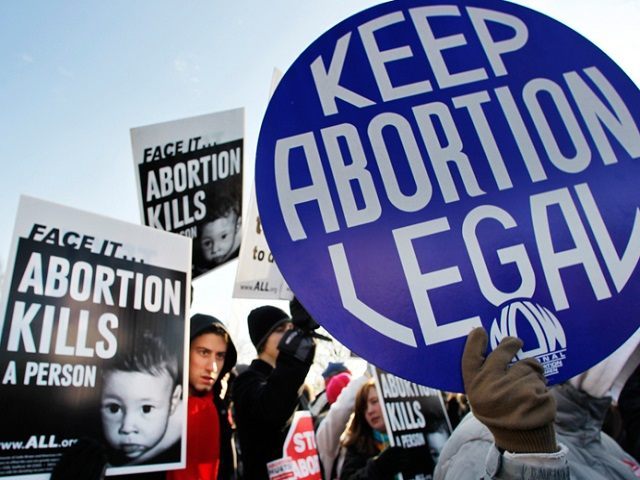Abortion will be back before the U.S. Supreme Court for the first time since 2007, spotlighting the issue during the 2016 presidential election.
The case is Whole Woman’s Health v. Cole, challenging a Texas law that requires abortion doctors to be admitted to practice in local hospitals, and that abortion facilities meet the same requirements as most medical facilities in terms of quality and care.
The Supreme Court invented a constitutional right to abortion in its 1973 case, Roe v. Wade, ensconcing into the U.S. Constitution what had previously been a state issue, one that would dominate federal election cycles for decades to come. The Court in Roe held that the Constitution grants women different abortion rights based on which trimester they were in during their pregnancy. Unborn children had no constitutional rights at all.
In 1992, by a 5-4 vote the Court reaffirmed the idea of a constitutional right to abortion in Planned Parenthood v. Casey, but jettisoned Roe’s trimester framework, holding instead that the Constitution forbids laws that impose an “undue burden” on women seeking an abortion, and also holding that states have more latitude restricting abortion after an unborn child is viable to survive outside the mother’s womb.
Casey was a huge loss for pro-lifers because the Court’s membership at the time declined to overrule Roe. This loss was accentuated in 2000, when the Court in Stenberg v. Carhart—again 5-4—held that even laws banning partial-birth abortion of full-term babies were unconstitutional, because even that rare event imposes an “undue burden” on women having abortions.
Then in 2006, Justice Samuel Alito replaced Justice Sandra Day O’Connor, who had been the swing vote on abortion. The very next year, the Court went the other way for the first time in many years in Gonzales v. Carhart, holding that a ban on partial-birth abortion did not impose an undue burden on women, and thus was fully constitutional.
That 2007 case was the last time the Supreme Court squarely addressed an abortion issue—until now. Texas’s H.B. 2 requires that doctors performing abortions must have credentials to practice medicine at local hospitals, ensuring that they would be able to care for their abortion-seeking patients in a major medical facility if the abortion procedure goes badly for the woman. And by requiring abortion facilities to meet the standards Texas requires for ambulatory surgical centers, women will know that the facility’s equipment and cleanliness meets the standard they would expect from a typical medical facility.
The U.S. Court of Appeals for the Fifth Circuit largely upheld the statute against a constitutional attack. Now the Supreme Court will weigh in on the matter, ensuring that abortion will once again dominate headlines in a presidential election. Arguments are expected in March or April 2016, with a decision by the end of June.
Ken Klukowski is legal editor for Breitbart News. Follow him on Twitter @kenklukowski.

COMMENTS
Please let us know if you're having issues with commenting.